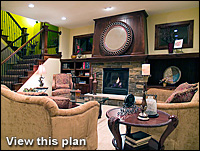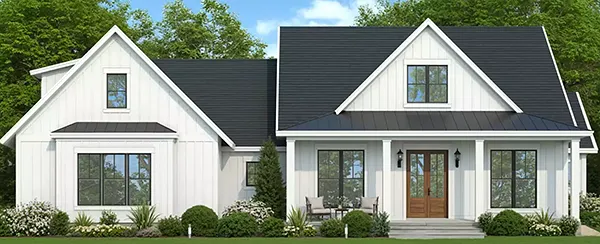Hot Heat Saving Tips

According to U.S. government projections, seven out of 10 U.S. households will see at least a 43 percent increase in the cost of home heating this year. With these increases, homeowners are turning to supplementary heating products like fireplaces, stoves and inserts to help take the burn out of high heating costs.
"Consumers can expect to pay more this winter to heat their homes due to rising energy costs, however there are ways to prepare and to lower your costs," said Jack Goldman, president of the Hearth, Patio & Barbecue Association (HPBA). "Installing an EPA-certified stove, fireplace, or insert can provide efficient, clean heat without sacrificing the warm ambiance that Americans enjoy."
Here are some top tips for saving money this winter:
- Prepare early: The earlier you inspect your existing appliances and purchase your new heating product (stove/fireplace/insert), the less likely you will face shortages or delays. Take advantage of the off-season to schedule your maintenance and research, purchase and install new products.
- Research your hearth options: First you need to decide whether you want to heat with a fireplace, stove or insert (when building a new home you can mix and match depending on the size, style and space). Then you need to choose the fuel - wood, gas or pellets - that best suits your home and heating needs.
- Understand the importance of efficiency ratings: Today, most hearth products are EPA-certified and are efficiency rated. Stoves/fireplaces/inserts are assigned a score between zero and 100, where higher scores indicate a better job of converting fuel into heat for your home.
- Look for EPA 40 when purchasing wood-burning fireplaces, inserts and stoves. High-efficiency wood-burning fireplaces, inserts and stoves are an attractive choice. Since 1992, the U.S. Environmental Protection Agency (EPA) has required this type of fireplace to pass stringent emission tests - meaning new wood-burning fireplaces burn much cleaner and use less wood to produce greater amounts of heat than dated models. Homeowners should look for the EPA 40 certified high-efficiency models, which give the option to burn the appliance on no-burn or low emission days. In addition, they offer up to 78 percent efficiency, making them a powerful home heating source.
- Get in the zone: You can reduce heating costs by up to 40 percent by zone heating with high-efficiency fireplaces. This is a great savings, considering that heating and cooling your house accounts for 56 percent of energy use. With zone heating, heat is restricted to the most frequently used parts of the home to help keep heating expenses down. You simply turn down the thermostat for your central furnace and using your chosen hearth product you can zone heat specific areas of you home like the great room, den, kitchen and master suite.
- Use a professional: Investing in a professional installer will ensure your new hearth products are properly and safely insulated to retain heat and prevent fires. National Fireplace Institute® (NFI)-certified professionals can help make sure your fireplace, stove or insert is running to its maximum efficiency.
Design Tip
When shopping for a hearth system, make sure that the unit promotes air quality through the use of direct vent gas, electric and Environmental Protection Agency (EPA)-approved wood-burning fireplaces. Be sure you don't purchase unvented or vent-free fireplaces that contribute to unhealthy indoor air quality. Look for manufacturers that meet the guidelines established by the U.S. Green Building Council's (USGBC) LEED for Homes and the National Association of Home Builders' (NAHB) Green Building Standards for sustainable building practices.



.png)
.png)



